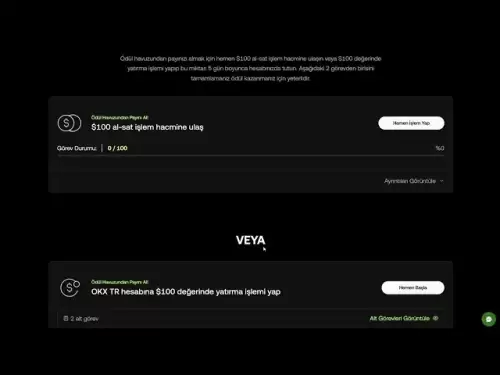-
 Bitcoin
Bitcoin $116400
-1.69% -
 Ethereum
Ethereum $3731
2.87% -
 XRP
XRP $3.119
-1.00% -
 Tether USDt
Tether USDt $1.000
-0.04% -
 BNB
BNB $774.0
1.01% -
 Solana
Solana $181.0
-2.25% -
 USDC
USDC $1.000
0.02% -
 Dogecoin
Dogecoin $0.2314
-2.16% -
 TRON
TRON $0.3145
1.76% -
 Cardano
Cardano $0.8087
0.22% -
 Hyperliquid
Hyperliquid $43.01
0.68% -
 Stellar
Stellar $0.4247
-0.93% -
 Sui
Sui $3.758
1.42% -
 Chainlink
Chainlink $18.30
1.99% -
 Bitcoin Cash
Bitcoin Cash $551.4
5.66% -
 Hedera
Hedera $0.2482
3.08% -
 Avalanche
Avalanche $23.70
0.18% -
 Litecoin
Litecoin $115.1
2.44% -
 UNUS SED LEO
UNUS SED LEO $8.972
-0.36% -
 Shiba Inu
Shiba Inu $0.00001370
0.73% -
 Toncoin
Toncoin $3.146
0.74% -
 Ethena USDe
Ethena USDe $1.001
-0.03% -
 Uniswap
Uniswap $10.49
3.95% -
 Polkadot
Polkadot $4.044
1.42% -
 Monero
Monero $328.9
2.43% -
 Dai
Dai $0.9998
-0.03% -
 Bitget Token
Bitget Token $4.510
-1.10% -
 Pepe
Pepe $0.00001231
-1.68% -
 Aave
Aave $293.4
2.16% -
 Cronos
Cronos $0.1294
2.89%
What is the HTX contract insurance fund? Will it compensate after the liquidation?
The HTX contract insurance fund mitigates auto-deleveraging risks by absorbing losses from liquidations, ensuring market stability without directly compensating traders.
May 16, 2025 at 08:28 pm
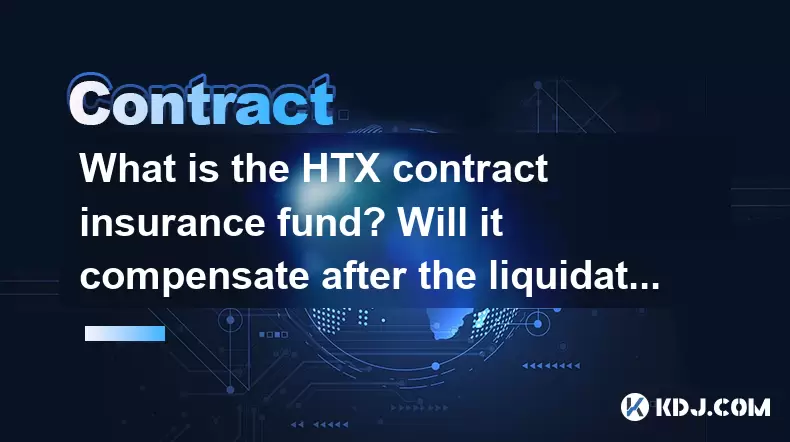
The HTX contract insurance fund is a critical component of the HTX trading platform, designed to ensure the stability and security of the futures and perpetual contract markets. This fund plays an essential role in managing the risk associated with leveraged trading, particularly in scenarios where a trader's position is liquidated. In this article, we will delve into the specifics of the HTX contract insurance fund, exploring its purpose, how it operates, and whether it compensates traders after liquidation.
Purpose of the HTX Contract Insurance Fund
The primary purpose of the HTX contract insurance fund is to mitigate the risk of auto-deleveraging events. Auto-deleveraging occurs when a trader's position is liquidated, and there are not enough funds in the market to cover the losses. In such cases, the insurance fund steps in to absorb the losses, preventing other traders from being forcibly closed out of their positions. This mechanism helps maintain market stability and protects traders from sudden and unpredictable losses.
How the HTX Contract Insurance Fund Works
The HTX contract insurance fund operates by accumulating funds from various sources, primarily from the liquidation of traders' positions. When a trader's position is liquidated, any remaining margin after settling the position is directed into the insurance fund. Additionally, the fund may be supplemented by a portion of the trading fees collected by HTX.
Here is a detailed breakdown of how the insurance fund functions:
- Liquidation Process: When a trader's position is liquidated, the system attempts to close the position at the best available market price. If the losses exceed the trader's margin, the insurance fund covers the deficit.
- Fund Allocation: The funds collected from liquidations and a portion of trading fees are allocated to the insurance fund, ensuring it remains adequately capitalized to handle potential future liquidations.
- Preventing Auto-Deleveraging: By absorbing losses that exceed a trader's margin, the insurance fund prevents auto-deleveraging, which could otherwise lead to a cascade of forced liquidations and market instability.
Compensation After Liquidation
A common question among traders is whether the HTX contract insurance fund compensates them after their positions are liquidated. The answer to this question is nuanced and depends on the specific circumstances of the liquidation.
- No Direct Compensation: The insurance fund does not directly compensate traders for their losses. Its primary function is to maintain market stability and prevent auto-deleveraging, not to reimburse individual traders.
- Indirect Benefits: While traders do not receive direct compensation, they benefit indirectly from the insurance fund's role in maintaining a stable trading environment. By preventing auto-deleveraging, the fund helps protect the overall market from volatility and potential losses that could affect all traders.
Examples of the Insurance Fund in Action
To better understand how the HTX contract insurance fund operates, let's consider a few hypothetical scenarios:
- Scenario 1: A trader opens a long position on Bitcoin with a leverage of 10x. The market moves against the trader, and the position is liquidated. The liquidation price is lower than the bankruptcy price, resulting in a deficit. The insurance fund covers this deficit, preventing auto-deleveraging and maintaining market stability.
- Scenario 2: Another trader opens a short position on Ethereum with a leverage of 5x. The market moves in favor of the trader, but a sudden spike in price leads to a liquidation. The insurance fund absorbs the losses, ensuring that other traders' positions are not affected.
Managing the Insurance Fund
HTX takes several measures to ensure the HTX contract insurance fund remains robust and capable of fulfilling its role:
- Regular Audits: HTX conducts regular audits of the insurance fund to ensure transparency and accountability. These audits help maintain trust among traders and ensure the fund is adequately capitalized.
- Risk Management: HTX employs sophisticated risk management strategies to monitor the health of the insurance fund and the overall market. This includes setting appropriate margin requirements and monitoring market volatility.
- Fund Growth: The insurance fund grows through the collection of liquidation proceeds and a portion of trading fees. This continuous growth ensures the fund can handle potential future liquidations.
Impact on Traders
The presence of the HTX contract insurance fund has a significant impact on traders, particularly those engaging in leveraged trading. Here are some key points to consider:
- Increased Confidence: Traders can have increased confidence in the stability of the market, knowing that the insurance fund acts as a safety net against auto-deleveraging.
- Risk Management: While the insurance fund does not eliminate the risk of liquidation, it helps manage the risk by preventing cascading liquidations that could lead to significant market volatility.
- Market Stability: The insurance fund contributes to overall market stability, which benefits all traders by creating a more predictable trading environment.
Frequently Asked Questions
Q1: How does the HTX contract insurance fund affect my trading strategy?
The presence of the insurance fund can influence your trading strategy by providing a layer of protection against auto-deleveraging. While it does not eliminate the risk of liquidation, it helps maintain market stability, which can be a factor in deciding your leverage and position sizes.
Q2: Can the HTX contract insurance fund run out of funds?
While it is theoretically possible for the insurance fund to be depleted, HTX takes measures to ensure it remains adequately capitalized. The fund grows through liquidation proceeds and a portion of trading fees, which helps maintain its solvency.
Q3: How can I monitor the status of the HTX contract insurance fund?
HTX provides regular updates on the status of the insurance fund through its platform. Traders can access this information to stay informed about the fund's health and its ability to handle potential liquidations.
Q4: Does the HTX contract insurance fund cover all types of contracts?
The insurance fund primarily covers futures and perpetual contracts on the HTX platform. It is designed to handle the specific risks associated with these types of leveraged trading instruments.
Disclaimer:info@kdj.com
The information provided is not trading advice. kdj.com does not assume any responsibility for any investments made based on the information provided in this article. Cryptocurrencies are highly volatile and it is highly recommended that you invest with caution after thorough research!
If you believe that the content used on this website infringes your copyright, please contact us immediately (info@kdj.com) and we will delete it promptly.
- Pump, Bonk, Buyback: A Wild Ride in Crypto Town!
- 2025-07-25 19:10:12
- Punisher Coin, Dogecoin, Shiba Inu: Meme Coin Mania in the 2025 Crypto Landscape
- 2025-07-25 19:10:12
- Celestia's Token Control: Buyback & Staking Overhaul in Focus
- 2025-07-25 19:50:11
- Altcoins, Bitcoin, and Crypto Coins: What's Hot in the NYC Crypto Scene?
- 2025-07-25 19:55:52
- Litecoin Price Breakout Imminent? Rally Potential Explored!
- 2025-07-25 17:30:12
- Ether ETFs Surge, Bitcoin Wobbles: Is an ETH Breakout Imminent?
- 2025-07-25 16:50:12
Related knowledge
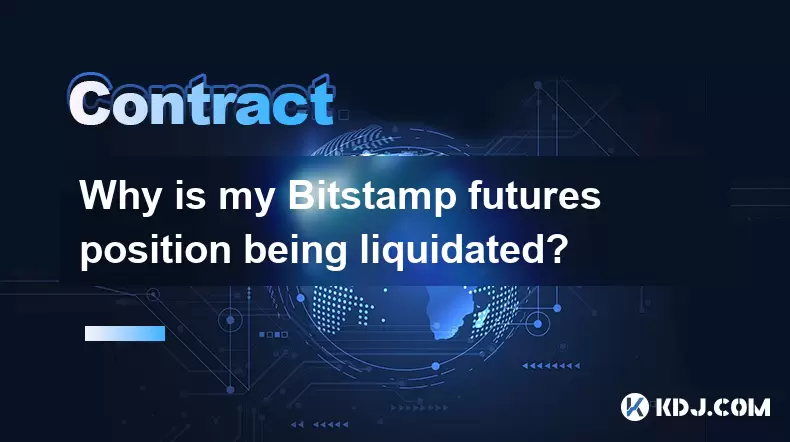
Why is my Bitstamp futures position being liquidated?
Jul 23,2025 at 11:08am
Understanding Futures Liquidation on BitstampFutures trading on Bitstamp involves borrowing funds to open leveraged positions, which amplifies both po...

Does Bitstamp offer inverse contracts?
Jul 23,2025 at 01:28pm
Understanding Inverse Contracts in Cryptocurrency TradingIn the realm of cryptocurrency derivatives, inverse contracts are a specific type of futures ...

How to find your Bitstamp futures trade history?
Jul 23,2025 at 08:07am
Understanding Bitstamp and Futures Trading AvailabilityAs of the current state of Bitstamp’s service offerings, it is critical to clarify that Bitstam...
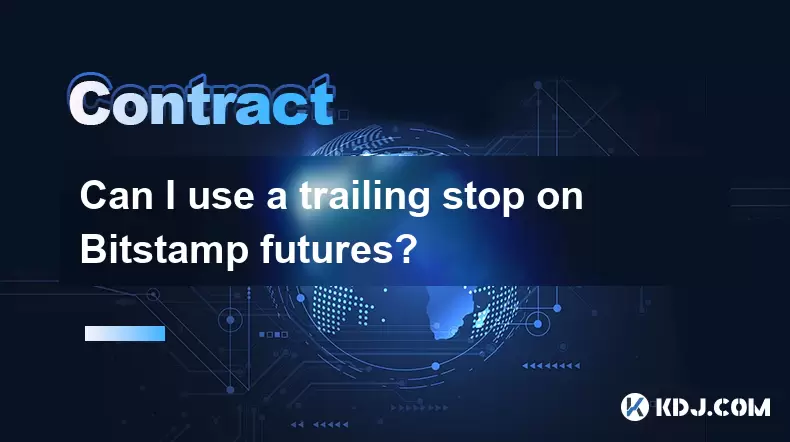
Can I use a trailing stop on Bitstamp futures?
Jul 23,2025 at 01:42pm
Understanding Trailing Stops in Cryptocurrency TradingA trailing stop is a dynamic type of stop-loss order that adjusts automatically as the price of ...
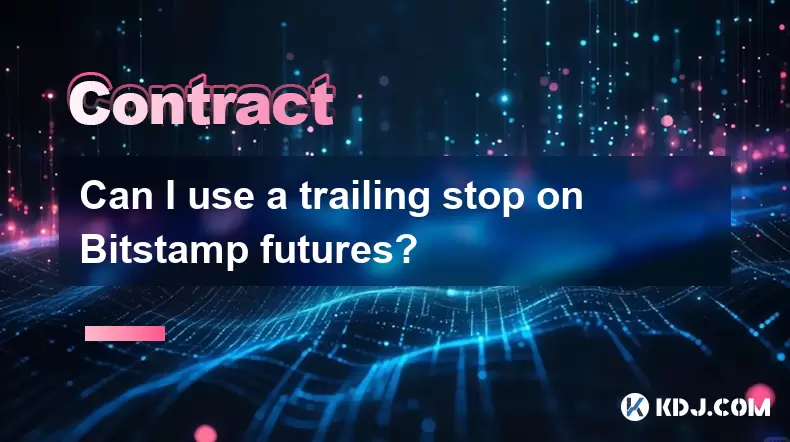
Can I use a trailing stop on Bitstamp futures?
Jul 25,2025 at 02:28am
Understanding Trailing Stops in Cryptocurrency Futures TradingA trailing stop is a dynamic type of stop-loss order that adjusts automatically as the m...
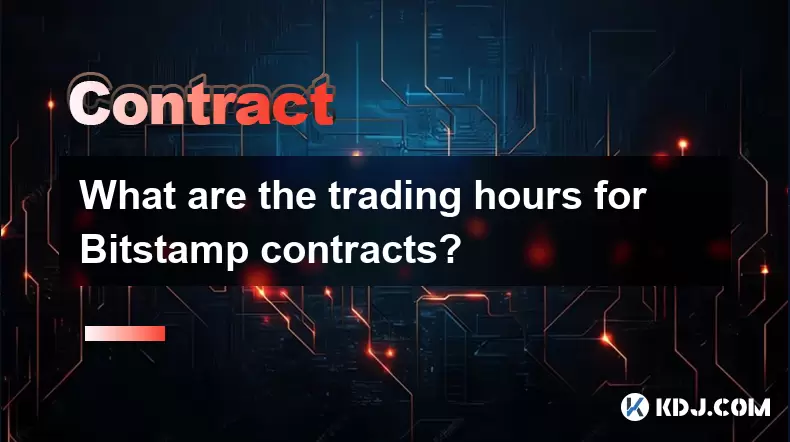
What are the trading hours for Bitstamp contracts?
Jul 24,2025 at 11:56am
Understanding Bitstamp and Contract Trading AvailabilityBitstamp is one of the longest-standing cryptocurrency exchanges, established in 2011 and head...

Why is my Bitstamp futures position being liquidated?
Jul 23,2025 at 11:08am
Understanding Futures Liquidation on BitstampFutures trading on Bitstamp involves borrowing funds to open leveraged positions, which amplifies both po...

Does Bitstamp offer inverse contracts?
Jul 23,2025 at 01:28pm
Understanding Inverse Contracts in Cryptocurrency TradingIn the realm of cryptocurrency derivatives, inverse contracts are a specific type of futures ...

How to find your Bitstamp futures trade history?
Jul 23,2025 at 08:07am
Understanding Bitstamp and Futures Trading AvailabilityAs of the current state of Bitstamp’s service offerings, it is critical to clarify that Bitstam...

Can I use a trailing stop on Bitstamp futures?
Jul 23,2025 at 01:42pm
Understanding Trailing Stops in Cryptocurrency TradingA trailing stop is a dynamic type of stop-loss order that adjusts automatically as the price of ...

Can I use a trailing stop on Bitstamp futures?
Jul 25,2025 at 02:28am
Understanding Trailing Stops in Cryptocurrency Futures TradingA trailing stop is a dynamic type of stop-loss order that adjusts automatically as the m...

What are the trading hours for Bitstamp contracts?
Jul 24,2025 at 11:56am
Understanding Bitstamp and Contract Trading AvailabilityBitstamp is one of the longest-standing cryptocurrency exchanges, established in 2011 and head...
See all articles

























